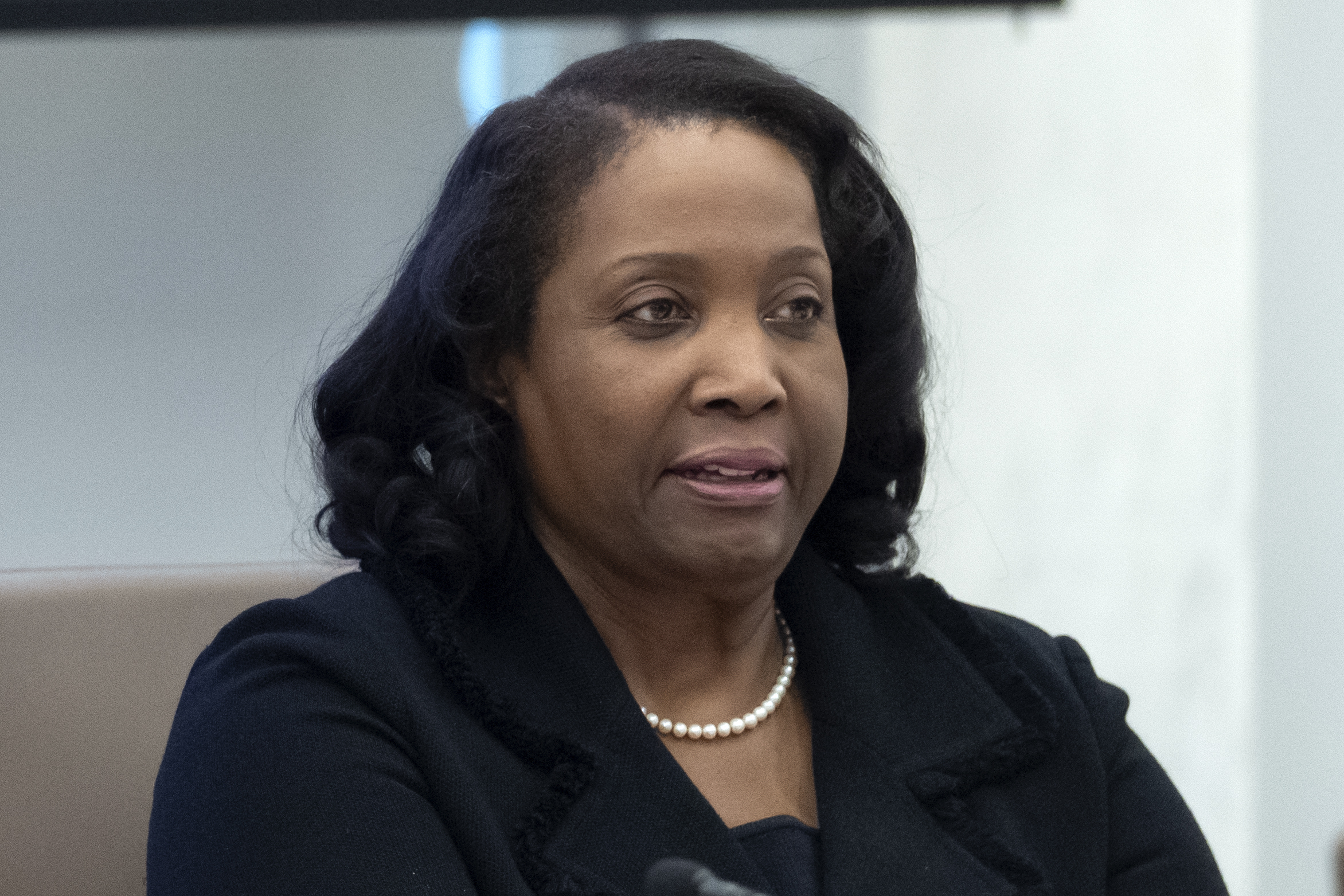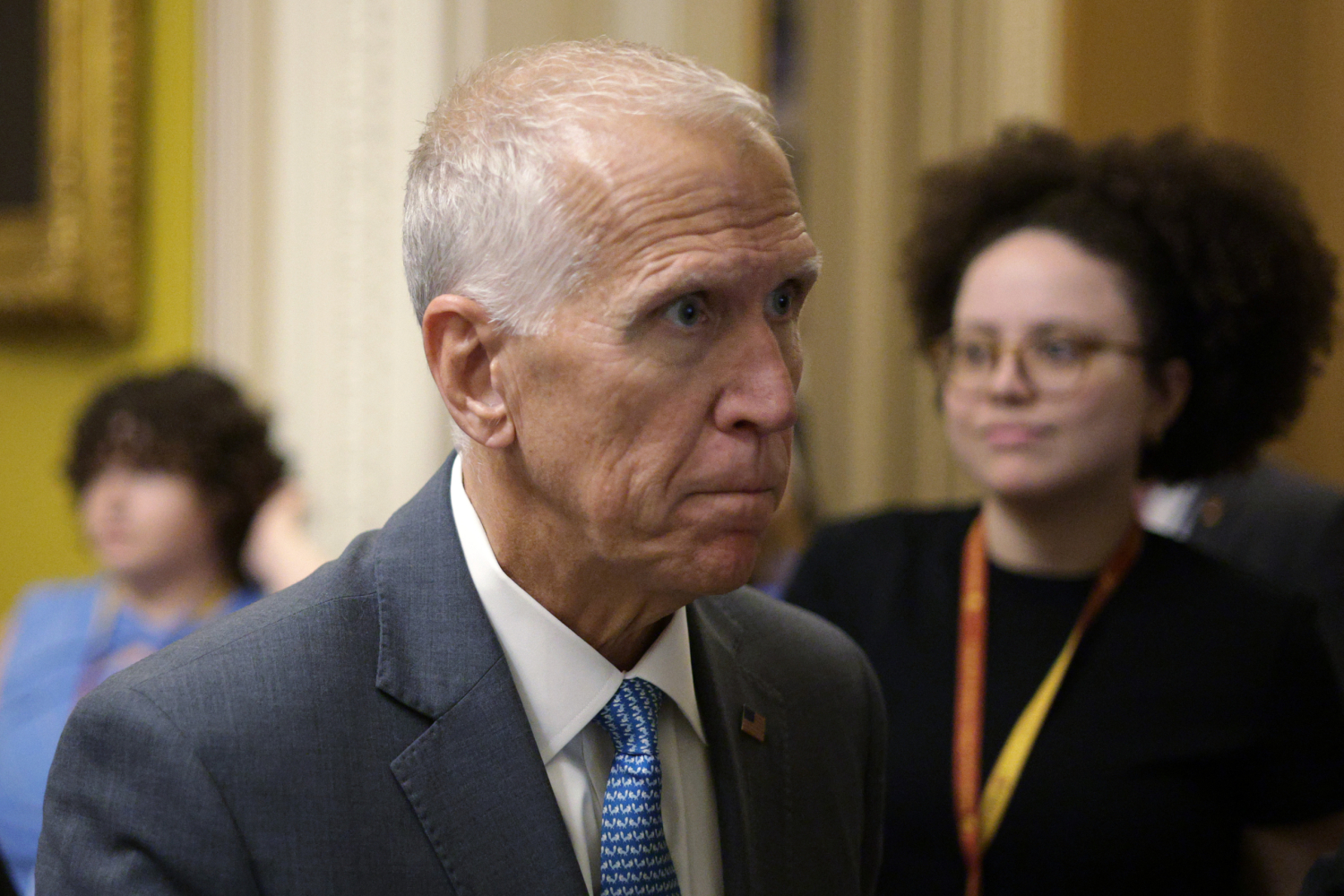By DOUG FERGUSON AP Golf Writer
ATLANTA (AP) — Cameron Young’s biggest goal this year was to play in the Ryder Cup at Bethpage Black, about an hour away from where the native New Yorker grew up, the course where he once held the scoring record while becoming the first amateur to win the New York State Open.
And there he was in May, spinning his wheels. He missed five cuts in eight tournaments, finished out of the top 50 in two others. That’s when he called an old friend.
Young was teammates at Wake Forest with Kyle Sterbinsky, who was still trying to make his way through various mini-tours. Sterbinsky is from the Philadelphia area, and the PGA Tour was at the Philadelphia Cricket Club for the Truist Championship.
“He was nearing the end of when he was going to keep playing or not. I needed a change. Things were going poorly, and when things are going bad, you change something,” Young said.
“I didn’t want to force his hand,” Young said. “He said, ‘Yes, I’ll work for you as long as you want.’ It was going to be a couple of weeks. Played well. Another four weeks. Played well. And here we are.”
Another key change was Young switching to a Pro V1 prototype before he broke through at the Wyndham Championship for his first PGA Tour victory. Young said it helped him manage how much he spins the ball.
More than close friends and teammates, Young said Sterbinsky is a “fantastic” — he emphasized each syllable — reader of greens.
“Caddies can help you with a lot of things, but I don’t know how many you’re going to find who are actually better at reading greens than any of the players,” Young said. “If he’s not better, he’s very, very good.”
Young, on the cusp of winning two majors as a rookie in 2022, finished the year with a win, a tie for fifth in the first FedEx Cup playoff event, a tie for 11th at the BMW Championship and a tie for fourth at the Tour Championship.
He has gone from No. 67 in the world ranking to No. 20 with Sterbinsky. And as he left East Lake he found himself hopeful of a call from Ryder Cup captain Keegan Bradley.
Tiger’s new deal
Tiger Woods hasn’t played since last December and his name came up twice last week, a look into the future that was as much about his birthday and any injury.
He turns 50 at the end of the year.
Paul Azinger, upon accepting the Payne Stewart Award, was thanking a close friend from the Concession Golf Club in Florida when he chuckled and said, “Hosting the Senior PGA Championship next year. Tiger is turning 50!”
And then came word that Woods had signed a brand partnership with Insperity, a business performance solutions company in Houston that has hosted a PGA Tour Champions event in the Houston area since 2011.
His agent at Excel Sports Management, Mark Steinberg, said it was an organic relationship that evolved over the last three years. Should golf expect to see Woods in Houston next year? Another chuckle. No, Steinberg said that wasn’t part of the contract.
Still, it was the first big deal involving Woods since he left Nike and launched his apparel brand Sun Day Red at the start of 2024.
Insperity will use Woods in brand campaigns and various programs, and the company plans to support several events that benefit his TGR Foundation and its mission of education, including support of the Genesis Invitational and Hero World Challenge.
“Insperity’s commitment to helping businesses thrive and their focus on long-term growth resonate with my values and goals,” Woods said in a news release.
Breakfast at Bethpage
The Ryder Cup now has what amounts to its own pregame show on the golf course.
“Breakfast at Bethpage” makes its debut this year, hosted by Colin Jost of “Saturday Night Live” in what has been described as a blend of CollegeGame Day and ManningCast.
Peyton Manning’s Omaha Productions is behind this program that will be broadcast live from the grandstand at the first tee each morning of the matches on Sept. 26-28. There also will be reports from among the fans on the first tee and other parts of the course, with celebrity guests on the show.
“The Ryder Cup’s First Tee is legendary for its energy, and Breakfast at Bethpage will put fans right in the middle of that excitement,” Manning said.
Pro Shop Studios, the production company behind the “Full Swing” Netflix series and co-producers on “Happy Gilmore 2,” has teamed up with Omaha Productions to develop the format and is collaborating on all creative elements for the program.
It will be available to watch on the Ryder Cup’s website, app and YouTube page, along with being streamed on Peacock.
The Fanny connection
Harry Hall completed his best year by reaching the Tour Championship, which sends him to the Masters for the first time next year. Part of that is a connection with Nick Faldo, which led him to Swedish caddie Fanny Sunesson.
They met at The Players Championship a few years ago. Hall also got to know Faldo, who invited him to his home in Montana to hit balls.
“The best experience in the world,” Hall said, adding that Faldo watched him hit balls at Royal Portrush last summer.
Sunesson is more than a caddie. Long ago she worked with the German national team on course management, including one young lad years ago whose name was Martin Kaymer.
“I’ve been working with Fanny Sunesson on my mental game really, and we’ve been working together for the last 3 1/2 months,” Hall said at the BMW Championship. “And I’ve put a lot of my decision-making and getting a little bit more comfortable on the course down to my work with her.”
Hall was among those who reached the Tour Championship without full access to signature events to start the year.
He got into Kapalua from winning an opposite-field event in 2024 (tie for eighth). His tie for sixth at Colonial helped get him into the Travelers Championship, where he tied for ninth.
His sixth-place finish at the BMW Championship allowed him to get into the Tour Championship, and he’s set for 2026.
Europe on the rise
Tommy Fleetwood finally got his first PGA Tour victory. He also became the 17th player from the European continent to win on the tour over the last three years.
Fleetwood was the sixth English winner in that span, joining Justin Rose, Matt Fitzpatrick, Harry Hall, Aaron Rai and Matt Wallace. More remarkably is that Sweden is the only other country to produce two winners in that stretch, Ludvig Aberg and Vincent Normann.
Europeans combined to win 10 times this year, not a bad sign for them in a Ryder Cup year.
Divots
Two streaks are getting plenty of attention. Scottie Scheffler has gone 14 consecutive tournaments finishing no worse than eighth, which the PGA Tour says is the longest such streak since Ben Hogan over three years in the early 1950s. And the LPGA Tour now has had a different winner in the first 22 tournaments to start a season, the longest streak in its 75-year history. … Auburn junior Jackson Koivun has a PGA Tour card waiting for him when he turns pro next summer. He also has spots in the U.S. Open and British Open if he’s still an amateur. The major exemptions come with Koivun winning the Mark H. McCormack Medal as the leading player in the world amateur golf ranking this year.
Stat of the week
Tommy Fleetwood was the first player since Chad Campbell in 2003 to make the Tour Championship his first PGA Tour title.
Final word
“Look, the sports business is not that complicated. You get the product right, you get the right partners, your fans will reward you with their time because they’re telling you it’s good and they want more of it. And then the commercial and the business part will take care of itself.” — Brian Rolapp, CEO of PGA Tour Enterprises.









